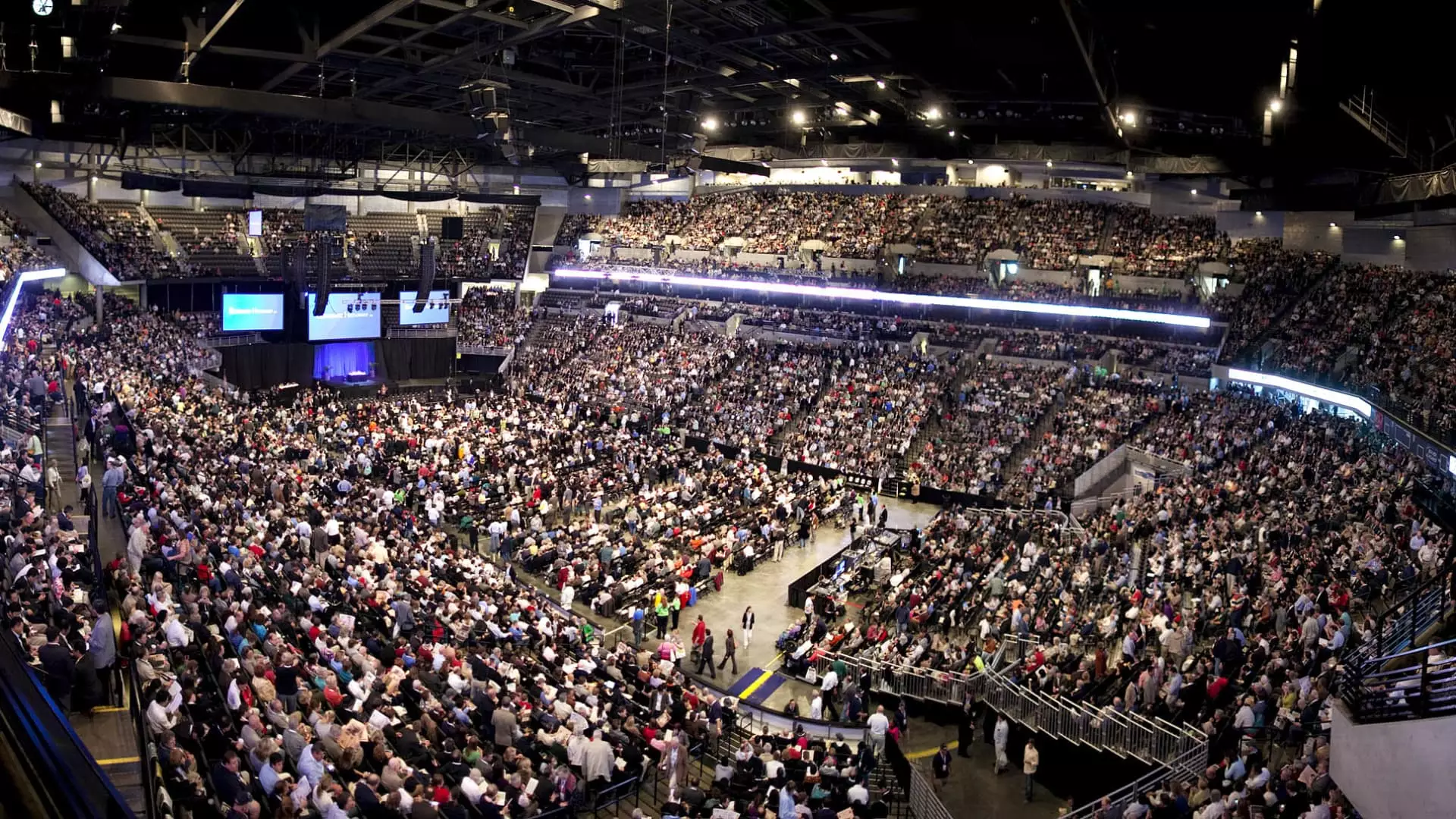When examining the remarkable evolution of Berkshire Hathaway’s annual meeting, one cannot overlook how the event has morphed from a modest gathering of a dozen individuals into an assembly that attracts around 40,000 people every year. This monumental change reflects not just the growth of the company itself but also a broader transformation in the culture of investing. The phenomenon, often dubbed “Woodstock for Capitalists,” signifies more than just a corporate event; it embodies the spirit of financial hope and the passionate pursuit of knowledge that now permeates the investment community.
Warren Buffett, the 94-year-old titan of investment strategy, has long been the heart and soul of this gathering. Known affectionately as the Oracle of Omaha, he offers insights that resonate far beyond traditional investment theology. His reflections touch on the human experience, from forming meaningful relationships to navigating life’s complexities. By threading personal anecdotes into his investment wisdom, Buffett creates a uniquely relatable dialogue that beckons individuals from all walks of life to engage, learn, and often, rediscover their ambitions.
The Absence of a Legend
This year marks an unusual turning point, tainted by the recent passing of Charlie Munger, Buffett’s lifelong friend and business partner. Munger’s intellectual rigor and candid critiques were essential components of the meetings, and his absence leaves an indelible mark on the fabric of the event. The introduction of Greg Abel, Buffett’s chosen successor, alongside Insurance Chief Ajit Jain hints at a transitional chapter in the Berkshire saga. Will they uphold the same level of charisma and insight? Attendees will undoubtedly be searching for hints that the essence of Berkshire’s unique culture is being preserved.
In the midst of this uncertainty, the fabric of the event remains intact, marshaling a blend of nostalgia and forward-thinking energy. While Buffett is set to deliver opening remarks, the omission of staple features, such as the beloved movie introduction, serves as a reminder that as we progress, certain cherished traditions may fade into obscurity. This year’s decision to maintain a short half-hour break during the question-and-answer period raises eyebrows, leading some to wonder if efficiency trumps the deeper connections that thrive in more extended interactions.
A Community in Flux
The yearly pilgrimage to Omaha constitutes more than just knowledge gathering; it’s an emotional journey rife with camaraderie. Long-time attendees, like Christopher Bloomstran, define the experience as a rite of passage for new investors. Unlike many tech-driven conferences that often feel transactional, the Berkshire meeting emanates warmth and connection, almost akin to a religious gathering. A poignant sentiment emerges: it’s not just about wealth accumulation but about being part of something larger — a community united by shared values, aspirations, and an insatiable curiosity for wisdom.
Yet the modern context offers both opportunities and challenges. Live-streaming options may offer accessibility, but they inadvertently dilute the in-person experience. Many return to Omaha not just for the knowledge but for the shared ethos and rituals that bind them as a community—something that a virtual session can simply fail to capture. It raises a question for the next generation: can a balance be struck between maintaining tradition and embracing the digital era without losing that sacred sense of connection?
Philanthropy and Purposeful Investing
Amidst the festivities and activities, Berkshire Hathaway’s ethos is also reflected in its commitment to social responsibility. The release of the limited edition book, “60 Years of Berkshire Hathaway,” with proceeds funding the Stephen Center — a charity focused on aiding homeless youth and adults — speaks volumes. It underscores that investing isn’t merely about profit margins; it intertwines with a greater mission to uplift society. Such initiatives exemplify how investment strategies can wield transformative power, transcending monetary goals to embrace a higher purpose.
As we probe deeper into the essence of the gathering, it becomes clear that the annual meeting is no longer a mere transactional forum but a crucible of ideas, experiences, and aspirations. The vibrancy, the electric spirit of community, and the candid conversations serve as a microcosm of the broader societal shifts towards human-centered investing—a philosophy that champions both financial success and social accountability.
In an age characterized by rapid technological advancement and shifting values, the foundation laid by Buffett, Munger, and their successors is a poignant reminder: true wealth encompasses not just fiscal output, but the intangible richness of community, shared ideals, and ethical investment methods.

